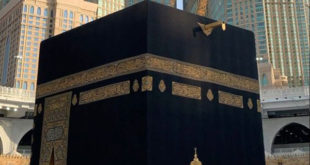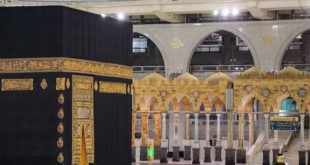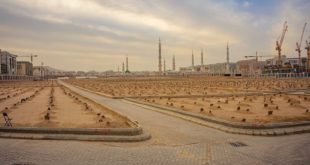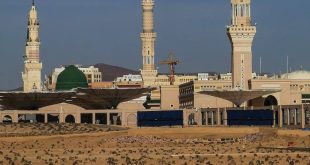1. The employer should pay his employee his wages timeously. He should not delay in paying him his wages. عن عبد الله بن عمر قال: قال رسول الله صلى الله عليه وسلم: أعطوا الأجير أجره قبل أن يجف عرقه (سنن ابن ماجة، الرقم: 2443) Hazrat Abdullah bin Umar (radhiyallahu ‘anhuma) …
Read More »Recent Posts
July, 2021
-
12 July
Fearing the Evil of the Nafs
Hazrat Moulana Ashraf Ali Thanwi (rahmatullahi ‘alaih) once mentioned the following: A person cannot trust his nafs at any time nor feel safe from its harm. Even though one may reach great heights in piety and perform miracles, or one may become a learned aalim or great wali, but at …
Read More » -
10 July
Dua When Visiting The Sick – 6
When visiting the sick, one should address the sick person and recite the following dua: يَا فُلَانُ، شَفَى اللهُ عَزَّ وَجَلَّ سَقَمَكَ، وَغَفَرَ لَكَ ذَنْبَكَ، وَعَافَاكَ فِي دِينِكَ وَجِسْمِكَ إِلَى مُدَّةِ أَجَلِكَ O so-and-so (in place of the word ‘fulaan’, mention the name of the sick person), may Allah Ta‘ala …
Read More » -
6 July
Sunnats and Aadaab relating to the Employer and Employee – Part 1
1. When employing someone, the employer should specify the wages he will pay and the work for which he is employing the person. Both these aspects should be mentioned clearly without any unclarity and ambiguity. عن أبي هريرة، عن النبي صلى الله عليه وسلم: من استأجر أجيرا فليعلمه أجره (السنن …
Read More » -
5 July
Why do we face Calamities?
A person once wrote a letter to Hazrat Shaikh Moulana Muhammad Zakariyya (rahmatullahi ‘alaih) and mentioned the following, “I have not usurped the right of any person, nor have I oppressed or wronged any person. Hence, I cannot understand why I am suffering one calamity and misfortune after another.” Hazrat …
Read More »
-
The Brother-in-law of Rasulullah (sallallahu ‘alaihi wasallam)
Hazrat Talhah (radhiyallahu ‘anhu) was married to four wives. Each of his four wives was …
Read More » -
The Compass of the Hearts of the Sahaabah (radhiyallahu ‘anhum) – The Tolerance of Rasulullah (sallallahu ‘alaihi wasallam) – The Orchards of Love – Part Seventy Four
-
Tafseer of Surah Naazi’aat
-
The Extreme Generosity of Hazrat Talhah (radhiyallahu ‘anhu)
-
Securing the Blessings of Ramadhaan, Umrah and Hajj – The Tolerance of Rasulullah (sallallahu ‘alaihi wasallam) – The Orchards of Love – Part Seventy Three
-
Receiving Seventy Rewards
Hazrat Abdullah bin Amr bin Aas (radhiyallahu ‘anhuma) reported, “Whoever sends salutations upon Nabi (sallallahu ‘alaihi wasallam) once, Allah Ta‘ala and His angels will send seventy mercies and blessings upon him in return of his one Durood. Hence, whoever wishes to increase his Durood should increase it, and whoever wishes to decrease his Durood should decrease it (i.e. if he wants to earn great rewards, then he should increase his Durood).”
Read More » -
Increase in Sustenance
-
The Reward of Fasting on the Day of Arafah
-
The Angel that Stands at the Blessed Grave of Hazrat Rasulullah (sallallahu ‘alaihi wasallam) to Convey the Durood of the Ummah
-
Reciting Durood when Entering the Musjid
-
Sunnats and Aadaab of the Host – 3
3. Generosity and feeding the creation was a salient quality and attribute of all the …
Read More » -
Sunnats and Aadaab of the Host – 2
-
Sunnats and Aadaab of the Host – 1
-
Sunnats and Aadaab which every person needs to adhere to in his individual life – 9
-
Sunnats and Aadaab which every person needs to adhere to in his individual life – 8
-
Hazrat Ali (radhiyallahu ‘anhu) – Part Forty-One – Being Sent by Rasulullah (sallallahu ‘alaihi wasallam) to Level the Graves, Destroy Idols and Erase Pictures
Hazrat Ali (radhiyallahu ‘anhu) reports that on one occasion, Rasulullah (sallallahu ‘alaihi wasallam) attended a …
Read More » -
Rasulullah (sallallahu ‘alaihi wasallam) Approving of the Verdict of Hazrat Ali (radhiyallahu ‘anhu) – Part Forty
-
The True Ulamaa – Hazrat Ali (radhiyallahu ‘anhu) – Part Thirty Nine
-
Du‘aa for Assistance in Settling Debts – Hazrat Ali (radhiyallahu ‘anhu) – Part Thirty Eight
-
The Concern of Hazrat Ali (radhiyallahu ‘anhu) regarding Business being Conducted According to the Islamic Principles – Part Thirty Seven
 Ihyaaud Deen An Effort to Revive Deen in Totality
Ihyaaud Deen An Effort to Revive Deen in Totality





















































































